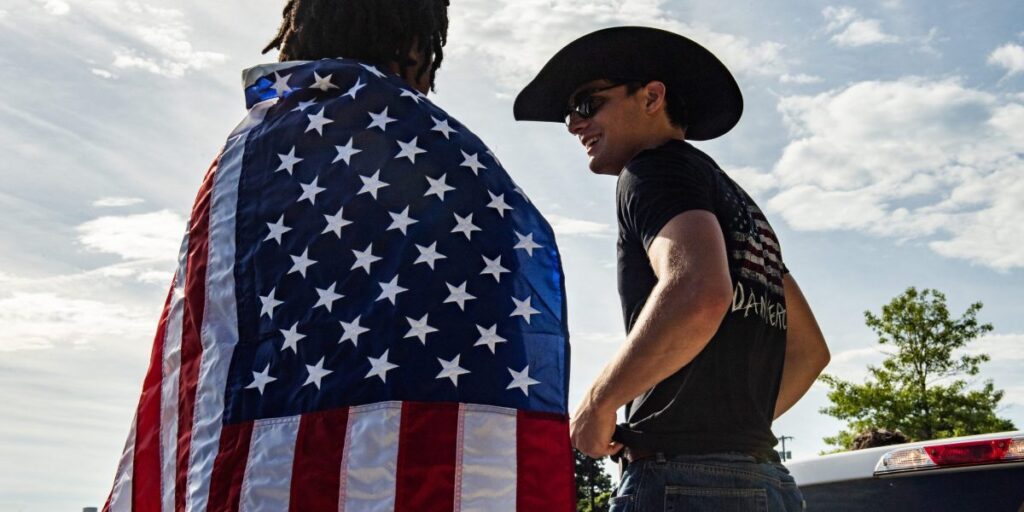
In the United States, July 4th is a day filled with food, festivities, and fireworks as our country celebrates the adoption of the Declaration of Independence in 1776.
Our celebration of Independence Day is an opportunity to reflect on our country—the progress we have made and the work we must do to strengthen our democracy and communities as we look to the future.
Like a successful business, democracy only works when all its components work well. The skills that make up this great experiment are the same ones that spark the inspiration and innovation needed for breakthrough ideas and sustained economic growth. In other words, citizenship is a 21st century business skill.
Critical thinking, problem solving, negotiation, curiosity, adaptability, risk sharing, and other so-called “soft skills” are increasingly being called “lasting skills” because they are not soft. In fact, a recent LinkedIn survey found that nine out of 10 C-suite executives around the world say they are more important than ever in the workplace.
Collaboration and shared risk
In government, promotion and decision-making require people working together. Whether you’re managing a polling place on Election Day or serving on a city council, the path to getting things done includes working with others who may have very different perspectives and ideas than you do.
While our neighborhoods, churches, schools, and other places where we gather with others may be homogeneous, in the workplace we are likely to encounter people who are different from us.
Organizations win when team members with different opinions and perspectives can work together effectively and respectfully. Companies and teams that excel at lasting skills can expect to improve employee morale, improve product service or quality, enhance innovation, and more.
Resolve conflicts and solve problems
Not understanding how our government works prevents people from finding common ground on basic issues. This lack of knowledge can lead to division, frustration, and ultimately incivility and an inability to communicate effectively with others, especially those who see the world differently.
A majority of Americans think the country’s tone is uncivil (58%). However, when people share a common understanding of the organization and processes, they can listen to others’ arguments and make strong cases of their own. In doing so, they can better use reason to compromise and manage conflict.
Hone your negotiation skills
Think about how legislation is usually created: Someone has an idea for change. Others may disagree. In an ideal world, they discuss their differences, find common ground, and draft legislation that is stronger because of a range of perspectives.
Managers are increasingly concerned about team members’ unwillingness to compromise and their inability to sit together and reach an agreement. In many ways, our Founding Fathers were deeply divided and their arguments fierce. However, they were able to reach a compromise that became the foundation of our country.
train critical thinking
Although sometimes chagrined, jury duty is one of the most important ways citizens participate in our system of governance.
Being a good juror involves weighing the evidence, questioning our own preconceptions, and asking good questions. These are the same critical thinking skills needed to make key organizational decisions.
Develop leaders
Understanding and participating in how government works teaches us how to operate within complex systems, navigate change, and use good judgment and reason to achieve goals. Simply put, civic engagement develops leaders who can use these skills in a variety of ways, including in the workplace.
Americans are hungry for employers to help build bridges, create healthier conversations and strengthen collaboration in the communities they serve. 82% of Americans believe businesses have a role to play in bringing our country together, and nearly 75% of voters believe businesses have a responsibility to protect our economic system and the nation’s environment.
Businesses can take small but meaningful steps to promote civic engagement. For example, employers can address critical shortages across the United States by providing employees with time off to serve as nonpartisan poll workers during local, state, and national elections. Alternatively, they can support employees selected for jury service by providing resources to help them prepare for their duties. They can also provide educational experiences that reintroduce employees to the basics of citizenship so they can learn more about how our government works and how to participate meaningfully. The U.S. Chamber of Commerce Foundation is one of several such initiatives to help employers improve citizenship skills within their teams.
As we prepare to celebrate Independence Day, now is the time for the business community to commit to improving civic education and skills in the workplace.
More must-read comments by wealth:
The views expressed in Fortune Star review articles represent solely those of the author and do not necessarily reflect the following views and beliefs: wealth.

